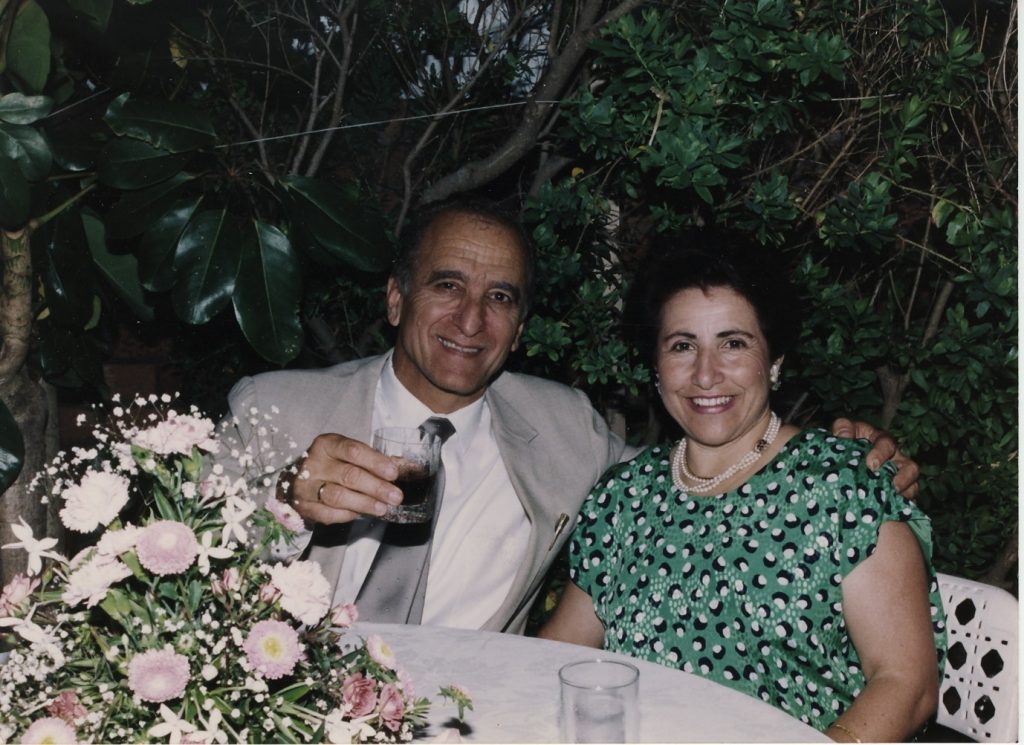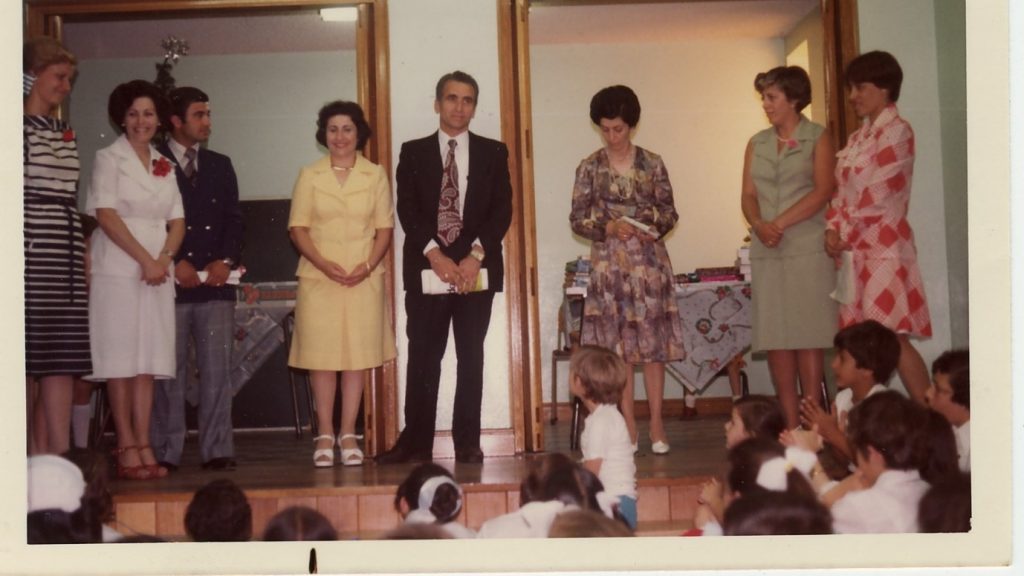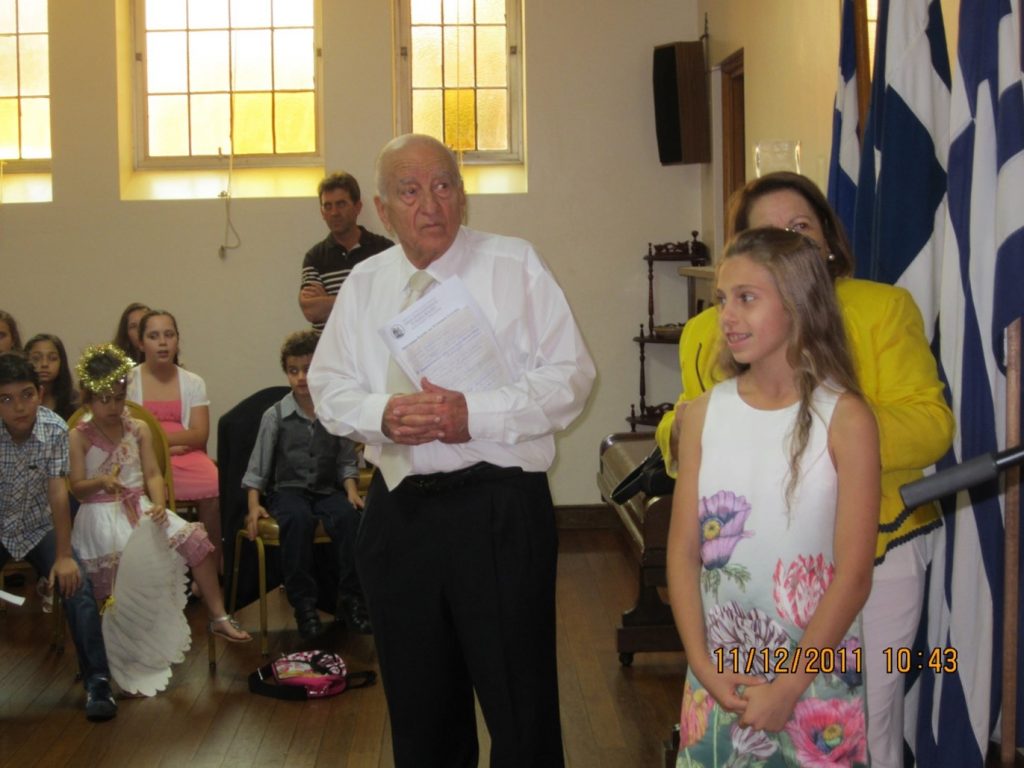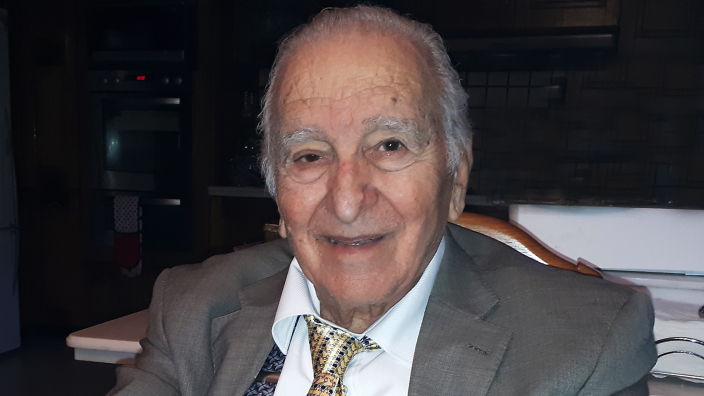By Maria Notaras.
The name Basil first appeared during the glorious Hellenist era (323BC -31BC), a period where Greek cultural influence abounded. It is derived from the male Greek name ‘Vassilios,’ meaning ‘royal and kingly.’ Whilst, in Arabic, the name was bestowed on boys who displayed a ‘fearless and intrepid’ nature. Thus, it is an entirely fitting name for a gentleman, born in Ismailia, a sophisticated north eastern Egyptian city famed for being the headquarters of the Suez Canal Authority at a time when the Greek influence of its expatriate citizens permeated the city’s soul.
Basil (Bill) Angelou, was born on the 22nd of February, 1930, the eldest son and third of five children to parents Dimitrios and Maria (Haratsis).
From the outset, Mr Angelou’s education reflected the rich tapestry of his context. He commenced his studies at Ismailia’s Greek school and later graduated with distinction at the French International school for boys, where he attained fluency in five languages: Arabic, English, French, Greek and Italian.

Acquiescing to his mother’s wishes, Mr Angelou forfeited the scholarship he received to study abroad in France and instead accepted a coveted cadetship with the Suez Canal Authority.
Sensing civil unrest, Mr Angelou, then aged 19, drew upon the ‘fearlessness’ embodied in his name and ‘intrepidly’ set about securing a passage to distant Australia in 1949. He was the first in his family to do so.
By 1956, President Gamal Abdel Nasser’s actions verified Mr Angelou’s worst suspicions. The decision to nationalise Britain’s enviable ‘crown jewel’ the Suez Canal quickly triggered a trilateral war between Egypt, France, England and Israel.
For Mr Angelou, personally, this historic development meant there was no turning back. The idyllic Egyptian-Greek society that characterised Mr Angelou’s birthplace was eternally shattered.
The most exciting personal outcome to emerge from Mr Angelou’s momentous relocation to Sydney happened in 1964 when Mr Angelou met his soulmate, ‘golden girl,’ Stefania Chryssafis.

Wedded to beautiful Stefania, Mr Angelou embarked on the ‘regal’ quest that would ultimately guide his destiny. He began by volunteering at Gardeners Road Public School as a Greek Orthodox scripture teacher for the parish of St George Church Rose Bay. His devotion to instilling the Greek Orthodox faith into the hearts of his students was evidenced by the fact that he performed this volunteering role for 37 years.
In his role as senior sales manager for Encyclopaedia Britannica, Mr Angelou became acutely emphatic about the value of education.
In 1973, Mr Angelou followed this deep-seated conviction by becoming a language teacher at St George’s Greek afternoon school. He held that role for what seemed a lifetime, nearly 40 years.

Christmas Concert for Greek School at St George Church (approx.1975).
End of Year Xmas Concert at St George Church (2010)
In addition to teaching his students to read, speak and write Greek, Mr Angelou felt duty bound to impart life lessons to his students. He fervently believed “you wouldn’t send a soldier to war without a weapon, hence you should never send a child into the arena of life without the right tools.”
To Mr Angelou, the ‘right tools’ meant embedding a deep appreciation of Hellenic faith, tradition and culture into young minds and encouraging travel.
He accomplished his holistic agenda by:
– Concluding every lesson by reciting the Lord’s Prayer and depending on the time of the year he would also fervently lead the students in the Greek National Anthem, the Christos Anesti and Greek Christmas Carols;
– Annually leading St George’s youth in the Greek Independence Day march to the Opera House;
– Co-ordinating annual visits to homes of St George parishioners to sing ‘Ta Kalanda’;
– Acting as chaperone for the Archdiocese Greek trip in 1981, 1983, 1984 and 1985.

Together with his wife ‘Stefi,’ Mr Angelou was indefatigable. He commenced his day, with before school Greek classes and ended each night at 9pm, when older students were tutored for HSC Greek and French.
At various times Mr Angelou taught Greek at Kambala, Claremont College, Waverley Public, Clovelly Public and Bondi Public. Together with his wife Stefania, Mr Angelou became the adored ‘adopted pappou’ to St George’s ‘Papakia’ a cohort of pre-schoolers who attend the Church’s Greek Playgroup sessions.
An excerpt of a letter read out at the conclusion of Mr Angelou’s funeral by former student Eleni Harris Egan validates this:
“Mr Angelou holds a vivid memory in my life, and the lives of my brothers and mother and my cousins and all the people of our generation.

“It wasn’t only the Greek School and the house tuitions where he managed to make learning enjoyable, it is the person that Mr Angelou was: kind, patient, never raising his voice, caring, compassionate, friendly, respectful to others and fair and humble. Such a brilliant man, a wonderful man and we will miss him, a solid identity of growing up Greek in Australia.”
On the 6th of April, 2008 Mr Angelou was officially recognised for his remarkable achievements when he was presented with the ‘Kosmas O Aitolos Award’ in recognition for his dedicated service to advancing Hellenic Studies.
In short, Mr Angelou left behind a legacy worthy of a ‘king.’ He deserves every accolade for his uncompromising commitment to educating several generations of Sydney’s Eastern suburbs youth.
Finally, Mr Angelou’s favourite song was Nat King Cole’s ‘Smile,’ which he would sing for family and friends on many occasions, However in the hearts and minds of the thousands of people whose lives Mr Angelou enriched, the words of a different Nat King Cole song apply, “Unforgettable.”
He is survived by his wife Stefania, his daughters Maria, Angelique, Dimitra, Sophie and Catherine and grandchildren, Sophia, Yiannis, Adam, Stephania and Niko. All are comforted with the knowledge that Mr Angelou is finally Resting in Peace.


